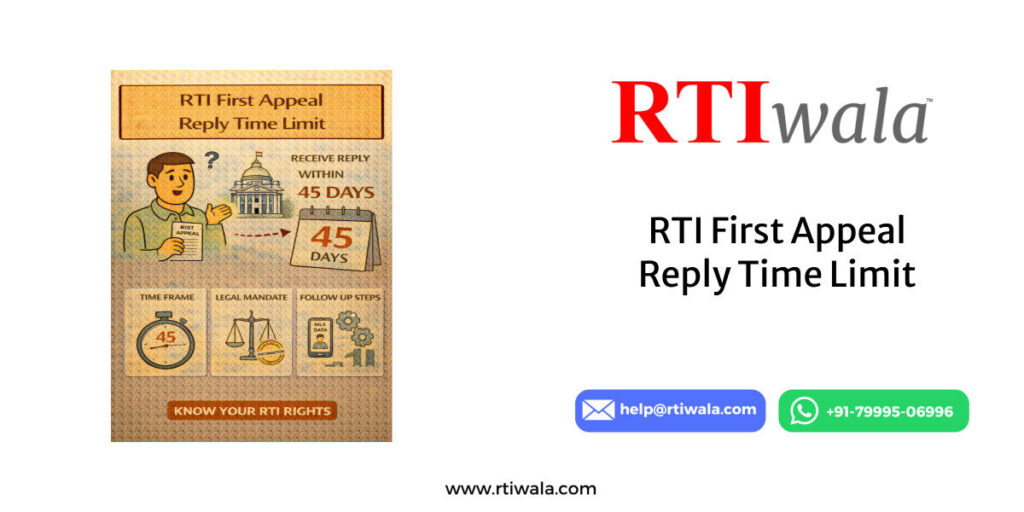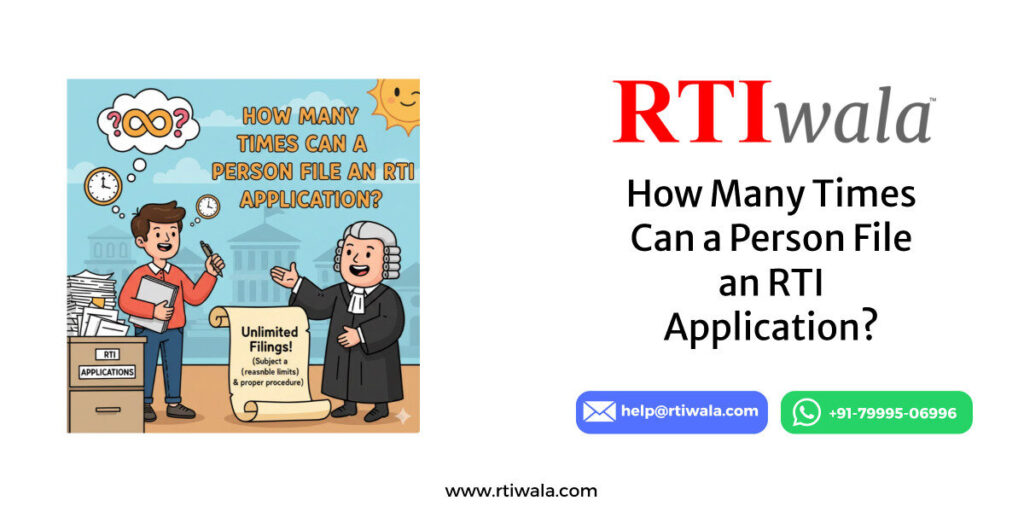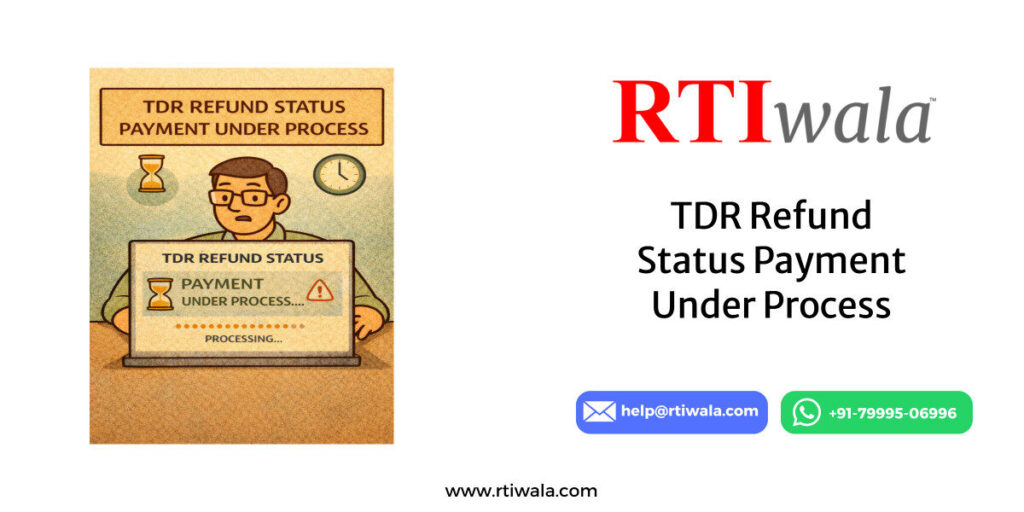Ever wondered how you can find out what’s going on in the government? The Right to Information (RTI) Act is here to help. RTIwala, a platform dedicated to promoting transparency, can assist you in navigating this process. Let’s dive into what this law is all about and how it empowers you as a citizen.
Table of Contents
Introduction to RTI Act
The Right to Information (RTI) Act is a powerful tool that allows citizens to access information from the government. Think of it as a key that unlocks the door to transparency and accountability in public administration. The act empowers you to ask questions, seek information, and hold public officials accountable.
History of the RTI Act
The journey of RTI in India began long before the act was officially enacted in 2005. It started with grassroots movements and civil society campaigns demanding transparency in governance. This push for openness culminated in the RTI Act, which was passed by the Indian Parliament on June 15, 2005, and came into effect on October 12, 2005.
Key Features of the RTI Act
The RTI Act has several key features that make it an effective tool for ensuring transparency:
- Right to Access Information: Any citizen can request information from a public authority.
- Obligation to Provide Information: Public authorities must provide the requested information within a stipulated time.
- Penalties for Non-Compliance: There are penalties for officials who fail to comply with the act.
How to File an RTI Request
Filing an RTI request is a straightforward process. Here’s how you can do it:
- Identify the Public Authority: Determine which government department holds the information you need.
- Draft Your Application: Write your request clearly, specifying the information you seek.
- Submit the Application: You can submit your application either online or offline, along with the prescribed fee.
- Wait for a Response: The public authority has 30 days to respond to your request.
Who Can File an RTI Request?
Anyone can file an RTI request. Whether you’re a student, a journalist, or just a curious citizen, the act is designed to empower you with the right to access information. There are no restrictions based on age, gender, or occupation.
What Information Can Be Requested in RTI?
Under the RTI Act, you can request a wide range of information from public authorities. This includes:
- Official Records: Minutes of meetings, reports, and documents.
- Decisions and Policies: Information on government policies, decisions, and implementation.
- Financial Data: Details about government spending and budgets. However, some information is exempted from disclosure to protect national security, privacy, and other sensitive areas.
Timeframe for Response
The RTI Act mandates that public authorities must respond to requests within 30 days. In some cases, like requests involving a person’s life and liberty, the information must be provided within 48 hours.
Exemptions Under the RTI Act
While the RTI Act promotes transparency, it also recognizes the need to protect certain types of information. Exemptions include:
- National Security: Information that could harm the integrity and security of the country.
Section 8(1)(a): Information, disclosure of which would prejudicially affect the sovereignty and integrity of India, the security, strategic, scientific, or economic interests of the state, relations with foreign states, or lead to incitement of an offense.
- Privacy: Personal information that could invade someone’s privacy.
Section 8(1)(j): Information which relates to personal information the disclosure of which has no relationship to any public activity or interest, or which would cause unwarranted invasion of the privacy of the individual unless the Central Public Information Officer or the State Public Information Officer or the appellate authority is satisfied that the larger public interest justifies the disclosure of such information..
- Trade Secrets: Information related to commercial confidence and trade secrets
Section 8(1)(d): Information including commercial confidence, trade secrets, or intellectual property, the disclosure of which would harm the competitive position of a third party, unless the competent authority is satisfied that larger public interest warrants the disclosure of such information.
The Role of Public Information Officers (PIOs)
Public Information Officers (PIOs) play a crucial role in the RTI framework. They are responsible for receiving and processing RTI requests. Each public authority is required to appoint a PIO to ensure that information is accessible to the public.
Appeals and Complaints
If your RTI request is denied or you are not satisfied with the response, you can file an appeal. The first appeal goes to the senior officer in the same public authority. If still unresolved, a second appeal can be made to the Central Information Commission (CIC) or State Information Commission (SIC).
Challenges and Criticisms
Despite its successes, the RTI Act faces challenges. These include:
- Delays: Slow response times from public authorities.
- Lack of Awareness: Many citizens are still unaware of their rights under the act.
- Bureaucratic Hurdles: Some officials are reluctant to share information.
The Impact of RTI on Society
The RTI Act has had a profound impact on Indian society. It has:
- Increased Transparency: Made government operations more transparent.
- Empowered Citizens: Enabled people to participate more actively in governance.
- Reduced Corruption: Helped uncover and reduce corruption in various sectors.
Conclusion
The Right to Information (RTI) Act is a landmark legislation that has transformed the way citizens interact with the government. It has opened up the corridors of power, making them accessible and accountable to the public. By using this powerful tool, you can play an active role in ensuring transparency and good governance.
FAQs
1. What is the Right to Information (RTI) Act? The RTI Act is a law that allows citizens to request information from public authorities to promote transparency and accountability.
2. How can I file an RTI request? You can file an RTI request by identifying the relevant public authority, drafting your application, and submitting it either online or offline with the prescribed fee.
3. What information can I request under RTI? You can request various types of information, including official records, government policies, and financial data. Some information, like that related to national security and privacy, is exempt.
4. What are the penalties for non-compliance with the RTI Act? Public officials who do not comply with the RTI Act can be fined up to Rs. 25,000.
5. How has the RTI Act impacted society? The RTI Act has increased transparency, empowered citizens, and reduced corruption, significantly impacting governance and public administration.






















































Hello Justin,
Thank you for reaching out! At the moment, RTIwala does not accept guest posts or paid link insertions on our website. If you have any other collaboration ideas or inquiries, feel free to contact us at help@rtiwala.com.
Best regards,
Team RTIwala
I’m interested
I need
Thank you for recognizing our team’s efforts!
We aim to provide engaging content. Stay tuned for more insights!
^RR
Thank you for your support!
We aim to provide engaging content. Stay tuned!
^RR
Hey there, I was wondering if you took guest posts on rtiwala.com? If so, how would I go about getting one on your site? If there is a fee, let me know.
Also, if you have any other sites you can get me a post on please list them.
Thanks
Justin
Hi there,
Thanks for reaching out!
At the moment, RTIwala does not accept guest posts, as we maintain a strict editorial policy focused on verified legal, RTI, and public-information content. However, if we introduce a guest-contribution program in the future, we’ll be sure to share the details publicly.
If you need anything else related to RTI assistance or legal information, feel free to connect with us anytime.
+91-7999-50-6996
RTIwala.com